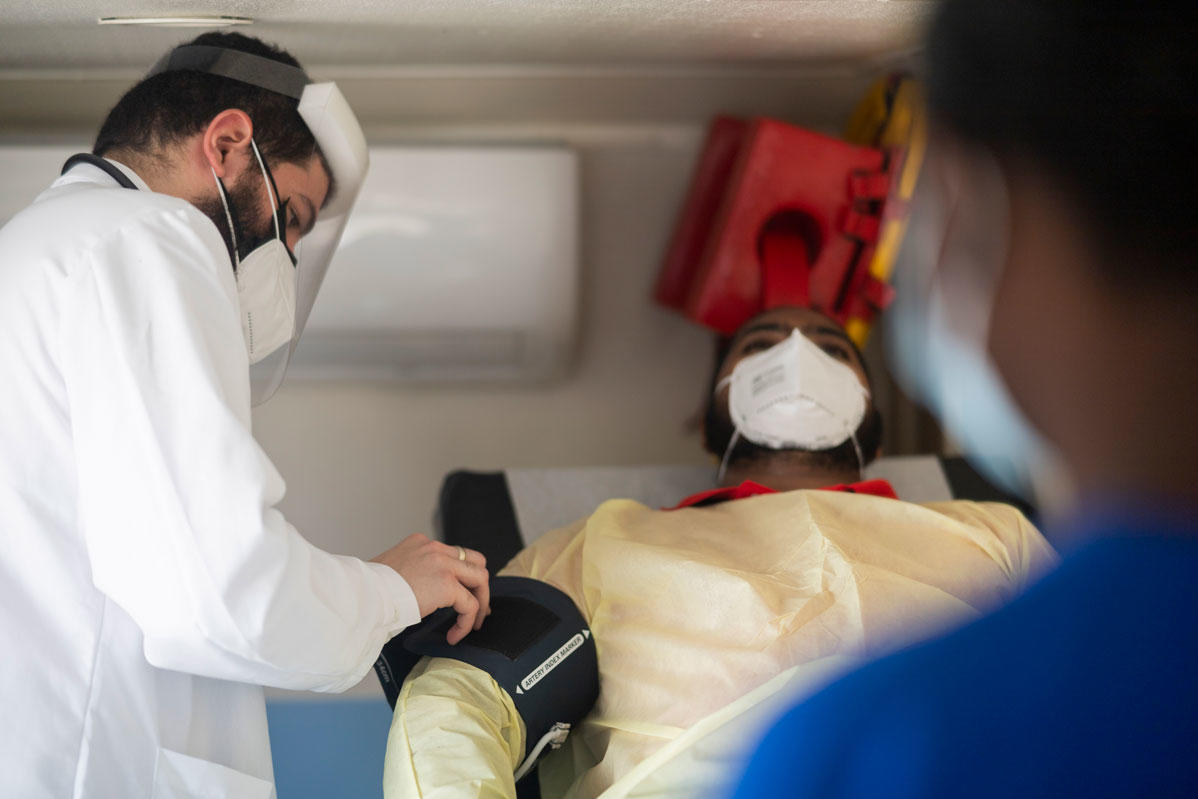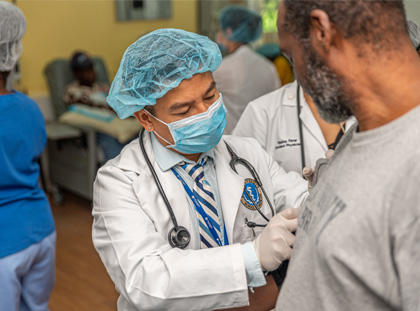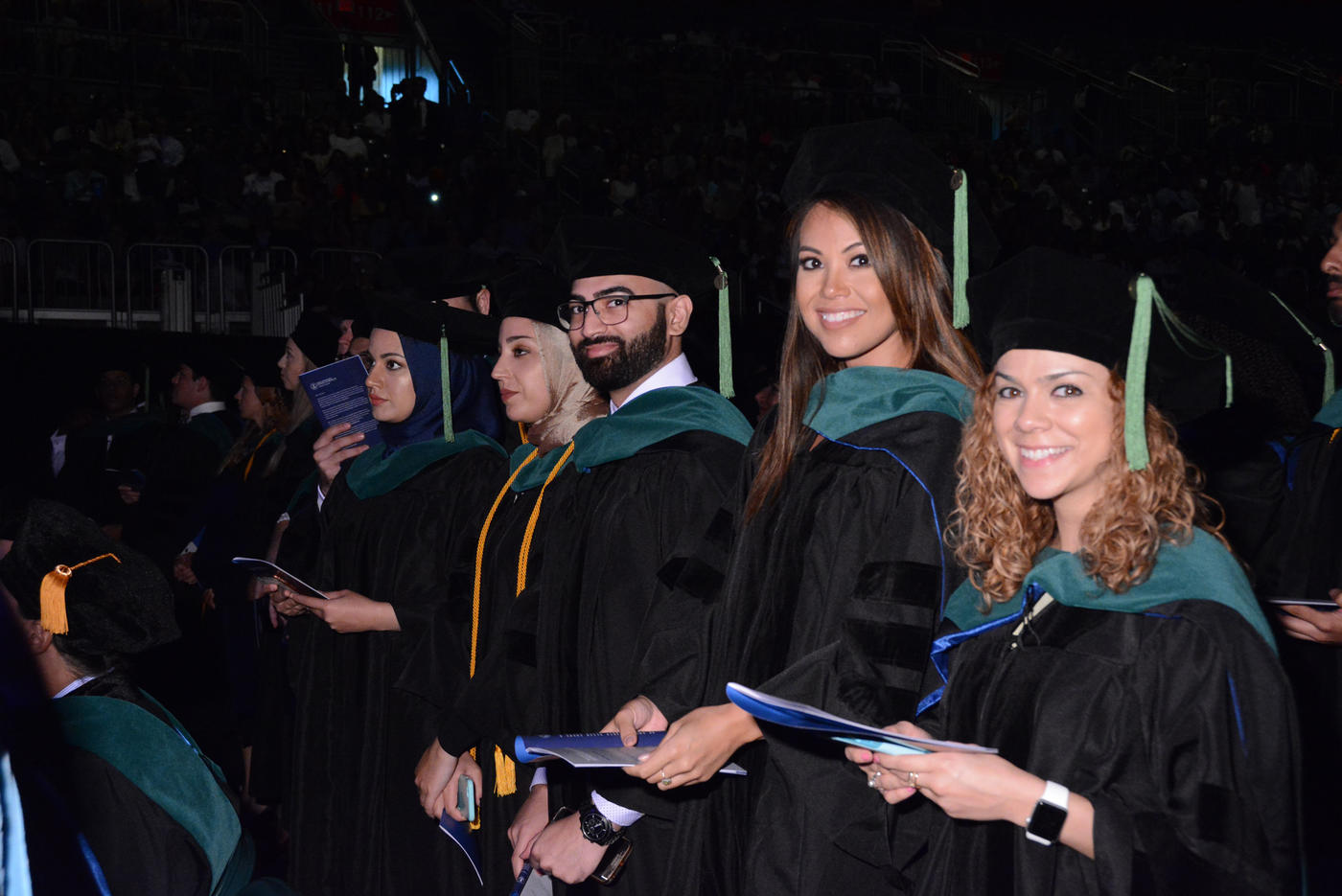There are many steps along the path to becoming a practicing physician. As a prospective doctor, you probably know that after earning your Doctor of Medicine (MD) or Doctor of Osteopathy (DO) degree, you will undertake a medical residency. After applying to multiple residencies in the area of medicine you wish to practice; after interviewing with several of those programs; and after creating a rank-order list of your preferred residency programs, you may be matched with a program. As a graduate of Ross University School of Medicine (RUSM), you should be prepared for residency, but you probably have a lot of questions. What is a medical resident, anyway? How long is medical residency? What is medical residency like? This article will answer those questions and more to help you prepare for this crucial step in your journey to becoming a physician.
Life as a Medical Resident
Medical residency programs take place in a clinic or hospital and allow medical school graduates to further hone the clinical skills required for them to practice on their own. Residents develop their skills in patient care, laboratory work, medical procedures, and other techniques they will need to succeed as a physician. Medical residency programs are accredited by the Accreditation Council for Graduate Medical Education (ACGME). The Association of American Medical Colleges (AAMC) recognizes more than 135 medical specialties and subspecialties, each of which has its own specific training. The medical residency length can last from three to seven years depending on the field of medicine you choose to pursue.
First year residents are known as “interns” because the first year of residency (also known as PGY-1, for post-graduate year one) is considered an internship. Interns are MDs or DOs, but they are only allowed to practice medicine under the supervision of an attending physician. Interns rotate through numerous specialties or subspecialties to gain a broad array of skills. Residents in family medicine may have rotations in a variety of disciplines, ranging from cardiology to oncology to gynecology and obstetrics. Surgical residents will have rotations in many types of surgery, such as thoracic, colorectal, and vascular. During PGY-1, most doctors will also take Step 3 of the United States Medical Licensing Exam® (USMLE®), the final exam required before becoming licensed to practice medicine. (Steps 1 and 2 are taken during medical school.)
Beginning with PGY-2 (post-graduate year two), interns become “residents” and concentrate on their specialties. Resident doctors make rounds with a medical team, led by an attending physician, that might include medical students, interns, and other residents. While working closely with the attending physician, residents help supervise interns and medical students. Resident doctors conduct physical examinations, record medical histories, write admitting orders, and participate in lectures and conferences. Residents may also work on research articles for publication in medical journals. As a resident, it is important to keep up to date on the literature in your chosen field.
Many physicians follow their residency with an additional training program known as a fellowship. Fellowships are the extra training and education required to practice a particular medical subspecialty. These programs usually require an additional one to three years of practice beyond residency. Subspecialties of internal medicine, for example, include such disciplines as gastroenterology, geriatric medicine, hospital and palliative medicine, rheumatology, and sports medicine.
Transition from Medical Student to Medical Resident
The transition from medical student to medical resident can be difficult as it places great demands on time and finances as well as mental health and interpersonal relationships. Life as a resident is challenging, with high expectations, long hours, and often too-little sleep. Doctors advise residents to remember to practice self-care: spend time with friends, participate in enjoyable activities, exercise, get enough rest, and ask for help when necessary. Focusing solely on your work can lead to exhaustion, depression, and burnout.
The American Medical Association (AMA) has a great deal of information about medical residencies, from advice on how to choose a residency, how to apply to residency programs, how to publish medical research, and how to transition from medical school to a medical residency. Their articles So you matched to a residency program—now what? and Graduating med students: Make a successful transition to residency have information that can help ease your transition from student to resident. Another article on the AMA’s website, Medical interns: Navigating the first year of residency, gives helpful advice on how to acclimate to your new role as an intern.
The AAMC’s article Easing into Residency: Transition Tips gives good practical advice on how to manage the transition into residency. At RUSM, the Office of Career Advisement assists you in the process of selecting and applying to residency programs and can help you understand what will be expected of you as a resident.
Now that you have answers to such questions as what is a medical resident and how long does a medical residency last, you may understand a little better what is ahead of you. If you are still a prospective medical student, investigate the Ross Med MD program and, when you’re ready, apply to RUSM to start your journey as a medical student, an intern, a resident, and eventually a practicing physician.
Related Resources:




